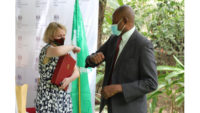At a Sept. 28 hearing before the House Committee on Government Reform, lawmakers grilled the Parsons Corp. and Special Inspector General for Iraq Construction Stuart Bowen to find out why and how the construction of a high-profile police training academy, as well as other projects in Iraq, went horribly awry. Bowen's office released a report Sept. 27 that detailed "construction deficiencies" that were so extreme that they posed a potential health hazard to future students at the college. According to the report, the plumbing system was so poorly installed that it caused feces and urine to leak from the ceilings onto the floors and walls of the student barracks.
"This debacle is not just a waste of taxpayer funds, and it just doesn't impact the reconstruction. It impedes the entire effort in Iraq," said ranking Minority Member Rep. Henry Waxman (D-Calif.) said, Parsons Delaware, Inc., Pasadena, Calif., held the approximately $73-million contract to design, renovate and build the academy and hired Iraqi subcontractors to perform most of the work. The U.S. Army Corps of Engineers terminated Parsons' contract May 31 after receiving complaints about poor conditions of the student barracks shortly after Iraqi police recruits arrived earlier in May. In his testimony, Bowen said a recent visit to the site was "extremely disappointing" and faulted both an Iraqi subcontractor's poor workmanship as well as Parsons' lack of oversight as the root of the problem. "Parsons had a duty to supervise how this Iraqi firm was doing," Bowen said.
Earnest O. Robbins II, senior vice president of Parsons,, said that U.S. Army Corps of Engineers inspectors signed off on the barracks construction shortly after the barracks were completed in April. He said that when the Corps later notified Parsons about the problems with the plumbing, the company required the Iraqi subcontractor to re-install the system. "It is being repaired at no cost to the government The situation is being remedied," he said. Robbins noted that the company successfully completed a number of other projects in Iraq, including several large Iraqi Ministry and judicial facilities, renovations on 12 hospitals, 119 border forts in "far-flung and remote locations," five border points of entry and 54 fire stations. Parsons also was well on its way to completing several health care facilities before the government terminated "for convenience" that particular contract, he said.
Robbins added that Parsons had difficulty finding "capable" Iraqi managers and skilled craftsmen. "The concepts of competitive contracting, transparent business practices, detailed documentation regarding invoices, and even rudimentary jobsite safety were all alien to the majority of Iraqis," he said. Moreover, dangerous conditions in Iraq made it increasingly difficult for "anyone, either Parsons or the government" to successfully complete the tasks at hand.
Cliff Mumm, president of Bechtel Infrastructure Corp., also testifying at the hearing, agreed that the worsening security conditions have made work increasingly difficult for American contractors. "The security environment we encountered in Iraq was profoundly difficult," he said, adding, "we are proud of the work we did in Iraq." Work performed by Kellogg, Brown & Root was also targeted for House criticism.



Post a comment to this article
Report Abusive Comment